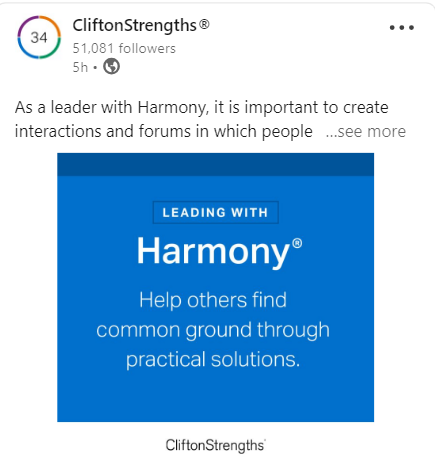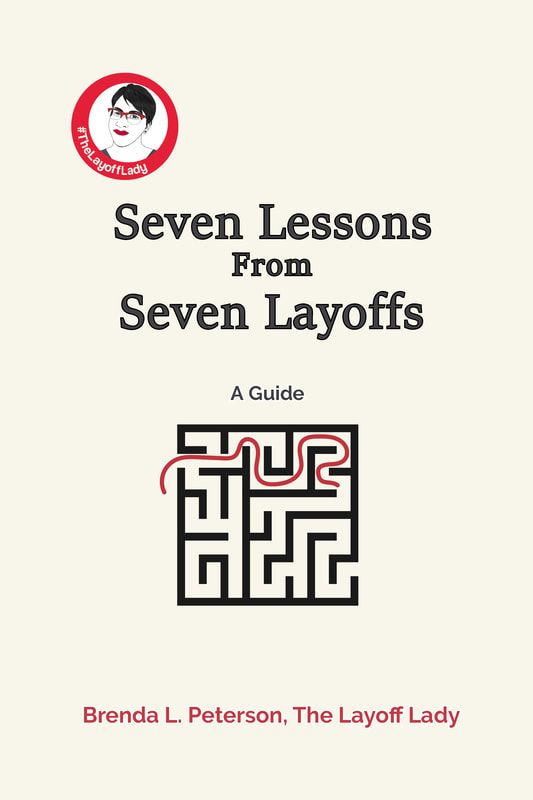|
By Brenda L. Peterson, The Layoff Lady The Challenge: Describing What You DoWhether you're searching for a new role or thinking about your professional development, not having the right words to describe your skillset can hinder your progress. Identifying your career keywords will help you create effective messaging for your LinkedIn profile, resume, conversations with colleagues, and other written communications like email and social media posts. Where To Start: LinkedIn and KeywordsHere is my recommendation for how to begin gathering keywords that align with your chosen profession:
Let me take you through an example. Search for Your Target Job TitleI searched LinkedIn's Jobs section for Business Partner Organizational Development in the United States. From the results, I selected ten currently open positions to review further (because I'm an overachiever like that). Here are those job titles:
Lesson Learned: When you search for a job title, your results will include a variety of titles different companies use. Be sure to review the job description to learn more about what that company expects from that role. The duties for the same job title might vary widely from company to company, as might the terminology they use to describe it. Identifying Skills and KeywordsTotal Number of Different Skills Returned for All Ten Jobs For the 10 jobs I reviewed, 69 different skills were included in the results. For context, if all roles had the exact same skills, this number would be 10. If all of the roles had different skills, this number would be 100. Lesson Learned: Not only will job titles vary across organizations, but what skills they value can also differ. Be sure to review the job description to learn more about what skills the company thinks will help make someone in that role successful. Specific Skills Returned For More Than One Job Several skills came up more than once across those ten jobs. Here is the number of times a specific skill appeared for more than one role:
Lesson Learned: Even if there is not widespread agreement on the terminology used across organizations, some keywords will show up more often. Consider including popular keywords in your skills section on your LinkedIn profile and in your resume. Different Keywords for Similar Skills While specific keywords like "communication" and "problem solving" appeared more than once within the 10 job descriptions, several related terms might be included instead. Here are a few groups of terms that take different approaches to describing similar concepts:
Lesson Learned: When you look at the groupings of keywords, you can see the broader areas where roles like this would operate. Each company may use slightly different terminology regarding the skills that they value. When you talk about the work you do, consider weaving some of these words into your stories. What Do You Think?How do you identify the right keywords to use to describe what you do? Share your thoughts in the comments. Learn More
0 Comments
By Brenda L. Peterson, The Layoff Lady Managing Job AnxietyRecently, I was at a professional development event where we shared best practices for delivering effective virtual training sessions. During networking time, I talked with a woman who had been laid off, and then called back to work for the same company (which is rare for someone working in the field of learning and development). While she was glad to be employed again, she was having a hard time being happy in her new/old position without constantly worrying about her job unexpectedly ending again. To Worry, or Not To Worry?When you've been laid off before, or just seen people around you lose their jobs, it's hard not to worry about it happening to you. Whenever you read about layoffs in the news, hear that your company's sales numbers were lower than expected, or hear rumors about a company merger, your mind might jump to conclusions. Instead of letting a wave of panic run through you each time your boss invites you to meet one-on-one, there is an alternative: changing your overall mindset. My Old Operating Modes: Either/OrEarlier in my career, I had two operating modes when it came to work: “I’m happy with my job” and “I need to find a new job right this minute.” When I was happy with my job, I did excellent work at my day job and didn't worry much about the future beyond that role. I would learn new skills for the job, but I didn't always think about my overall career trajectory. Conversely, when I knew I needed to launch a job search, I shifted away from the work I was doing and started focusing solely on taking my next steps outside of my current role and organization. Only then did I shift to developing skills applicable to another workplace, meeting more people to help me get a new job, and planning to exit the organization. My New Mindset: Both/AndI finally realized I didn't have to pick between these two operating modes. Instead, I needed to shift my overall way of thinking and adopt the both/and mindset that was also more long-term and sustainable. I started focusing on myself as a working professional and what I needed to do to succeed personally, regardless of who my specific employer was. This included focusing on my ongoing learning and development, building my professional network, and planning for contingencies. This built up my career resilience, which helped me feel more confident that I would thrive regardless of my current work situation. Learning and DevelopmentWhen people think of learning, they often focus on formal degrees, certifications, and completion certificates from instructor-led classes. While these are valuable, and often a great foundation, ongoing learning can take many forms. Whether you attend a webinar, watch a TedTalk, read an article online, or listen to podcasts on your area of interest, you are continuing your professional development. Staying current with industry trends and continuing to learn and grow helps me perform well in my current role while also allowing me to be future ready. In an ever-changing world, continued professional growth is the best way to manage whatever happens next. Building My Professional NetworkToo often, networking is depicted as a superficial act that involves making initial connections with people, then dreading the next day’s “Would you like to buy something from me” calls. I approach networking differently. My goal is to build mutually beneficial relationships with people. Interacting with these connections provides opportunities to share information, learn from one another, and help one another out along the way. I use LinkedIn to track my professional network. I connect with people I've met before and with whom I share something in common. My LinkedIn network includes former coworkers, individuals I've sat next to at in-person events, people I've attended an online event with, and professionals working in the same field as me. Contingency PlanningRegardless of my role, and even if it seems to be going well, I always have a backup plan, a backup backup plan, and then a couple more backup plans after those. After weathering many layoffs and the unique challenges of each, I have a broad sense of the situations I may need to mitigate. Those include an unexpected job loss, choosing an interim health care option, and how to launch a post-layoff job search. Here are a few steps I have taken to help prepare for possible situations:
What Do You Think?How do you help yourself not worry about being laid off? Share your thoughts in the comments. Learn More
By Brenda L. Peterson, The Layoff Lady Learn all the things!Whether you're gainfully employed or looking for a new role, continuing to learn and grow is a valuable career resilience strategy. While you can certainly pursue college degrees or certifications, there are many informal ways to increase your knowledge. Here are three of my favorite ways to continue learning and growing. Strategy 1: Social MediaStaying current on industry trends can be a challenge. One way to learn a little bit at a time is using social media. I use LinkedIn to learn a little at a time on topics that matter to me. Follow thought leaders and regularly read their posts to learn more about emerging trends and technologies. In addition, follow companies to stay current on their new products and positions in the marketplace. You can also follow hashtags for keywords you like to learn about. Here are a few topics I consistently learn about from social media posts:
Strategy 2: WebinarsWebinars are an excellent way to learn about a topic in more detail, usually over the course of 30-60 minutes. In a webinar, you can hear a speaker lead you through content, highlight important points, and string those ideas together into a more cohesive whole. In addition, you may also have the opportunity to interact with other webinar attendees. Webinars may focus on presenting content, answering questions from live attendees, or getting the group to share ideas on a specific topic. Here are a few webinars I have attended and what I took away from each:
Strategy 3: Professional OrganizationsProfessional organizations are a great way to learn more about a wide variety of topics. For one, you can attend regularly scheduled meetings, which typically have an educational component, to learn industry-specific content. Most groups have a social component, whether it is networking time during meetings or separate events that focus on getting to know other members. There are also volunteer opportunities, from helping check people in at a monthly meeting, being on an event-specific committee, and taking on a leadership role. These opportunities provide multiple ways to learn from a structured event or learn by doing. Here are a few professional organizations I have been a part of and ways I have learned content and skills:
Learn More
|

Just get laid off?
Click here for info on what to do first. Author7-time layoff survivor Brenda L. Peterson, The Layoff Lady, waxes poetic on layoffs, job transitions, & career resilience. Buy The Book!Were you recently laid off from your job and need a roadmap for what's next? Pick up a copy of my book, Seven Lessons From Seven Layoffs: A Guide!
Categories
All
Archives
July 2024
|








